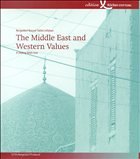Iran is attracting more and more attention in international policy circles, not least because of the country's nuclear program. It is a land between tradition and modernity, between democratic tendencies and authoritarian structures. Western politicians are demanding that Iran abandon what they consider recklessness in its foreign policy while opening its doors wider to democracy. For their part, Iranian representatives demand more respect for the country's normative-political traditions, its rapid process of social change, and its geopolitical and economic interests.
At the 127th Bergedorf Round Table in Isfahan, representatives of Iran's various political camps met with politicians, analysts, and journalists from the Middle East, Europe, the US, Russia, and the Asia-Pacific region. They discussed how Islamic cultures react to the West's norms of democracy and human rights, and whether Western states should seek to democratize other countries from the outside or a "dialog of cultures" over values and social models. The debate produced concrete recommendations for the role of the EU, a security conference for the Middle East, ways to harness the region's economic dynamism, and establishing dialog structures.
At the 127th Bergedorf Round Table in Isfahan, representatives of Iran's various political camps met with politicians, analysts, and journalists from the Middle East, Europe, the US, Russia, and the Asia-Pacific region. They discussed how Islamic cultures react to the West's norms of democracy and human rights, and whether Western states should seek to democratize other countries from the outside or a "dialog of cultures" over values and social models. The debate produced concrete recommendations for the role of the EU, a security conference for the Middle East, ways to harness the region's economic dynamism, and establishing dialog structures.

